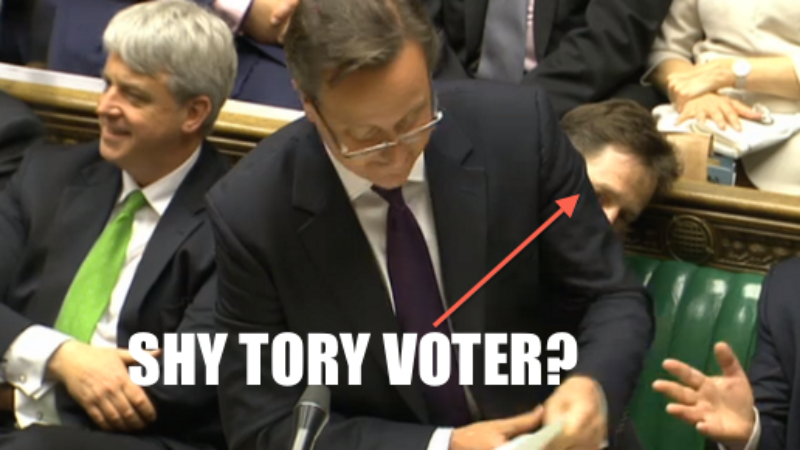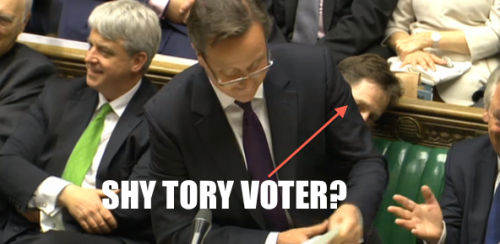
With an economy that’s growing, employment up and a national media reporting that wages are catching up with inflation, it’s not hard to see why the Tories might take a poll lead. Even if Miliband and Balls are right, and people are not feeling the recovery yet, figures like that might well convince people that if they aren’t currently enjoying the benefits, they surely will soon.
This is an easy explanation for Labour’s poll wobble this week. Except there’s one problem: the Tory vote hasn’t really gone up.
Labour have though, undeniably, lost some support. But where has it gone?
According to Political Betting, a large proportion of switchers away from Labour have simply moved into the “Don’t know” column, rather than towards the Conservatives.
One reading of this this could be that there’s a large number of dissatisfied people in Labour’s core vote who simply need energising. They’re unhappy with Labour at the moment, but it’s not about a shift to left or right – it’s about presentation, and at this point any bold move by the leadership would be welcomed. And there’s an argument, surely, that with the coverage that comes with the final week before an election, you’ve a much better chance of exciting your base. They will, having expressed their dissatisfaction in a poll and given Miliband a scare, nevertheless trudge down to the polling station next Thursday and, having been reminded why they should, vote Labour.
At the very worst, these are people who are feeling genuinely undecided, but they did vote for us in our worst election showing of the past thirty years, so we can reasonably expect that they’ll be open to voting Labour again.
Phew. Close call, but we’ll have got away with it, just.
However there’s another, more troubling, possibility.
There seems to be a consensus that after the 1992 polling fiasco, where Labour were predicted a narrow win even after the polls had closed, polling companies found a foolproof way of making their predictions more accurate. The problem, it was found, was the emergence of a “Shy Tory Voters” – people who did not yet trust Labour to run the country, but felt that the Tories were so deeply unpopular that they couldn’t feel they could admit to voting for them, even to a pollster.
True, polling has become much more sophisticated in the past couple of decades – but the changes made to correct the problem of 1992 may not apply to new demographics of the 21st century. Then, they found that people who had voted Tory in 1987 had fibbed about voting Labour five years later, and so changed the way they analysed their data to take into account how people previously voted.
What we could have here is people who stuck with Labour in 2010, as they were unsure about handing charge of a tentatively recovering economy to the untested Cameron and Osborne, but are now facing a similar dilemma with Labour’s leadership as the economy begins to looks stronger. It’s been largely accepted that only diehard Labour supporters voted for us in the last general election. We have to now consider the uncomfortable thought that some of our share may have been an incumbency factor of sorts.
The current fluctuations in the polls could be at least partly attributable to the different ways polling companies deal with “Don’t knows”, post-1992, – so when there are more undecideds, there are bigger discrepancies between polls.
There is obviously no real enthusiasm for the Tories at the moment. People still see David Cameron as out of touch, his party are still perceived as having a women problem, and while many of the Coalition’s welfare reforms have proved popular, policies such as the Bedroom Tax remind them that the Nasty Party still exists. These are the reasons the Conservative Party remains to many a toxic brand – toxic enough you might not want to admit voting for them, but very possibly, not so toxic as to stop you secretly supporting them. This may be the emergence of a New Shy Tory Factor.
We must prepare ourselves for the possibility that we might not do as badly as some people are saying this Thursday. We might do worse.





More from LabourList
Almost half of Labour members oppose plans to restrict jury trials, poll finds
‘How Labour can finally fix Britain’s 5G problem’
‘The University of the Air – celebrating 60 years of Harold Wilson and Jennie Lee’s vision’